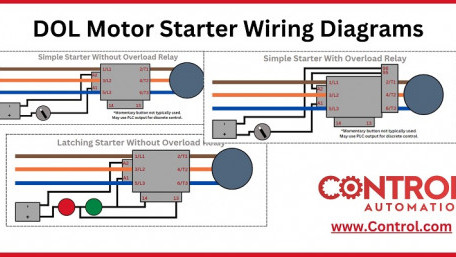
Complete wiring guide for 3-phase motor starters with and without overload (OL) relays.
Complete wiring guide for 3-phase motor starters with and without overload (OL) relays.
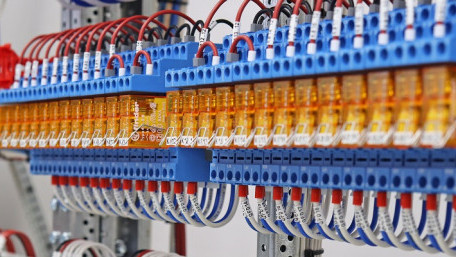
Have you ever heard of a relay? Of course you have. There are many different kinds, plus hundreds of different trade…
Have you ever heard of a relay? Of course you have. There are many different kinds, plus hundreds of different trade lingo names. What are some of the most common, and how do we use them?
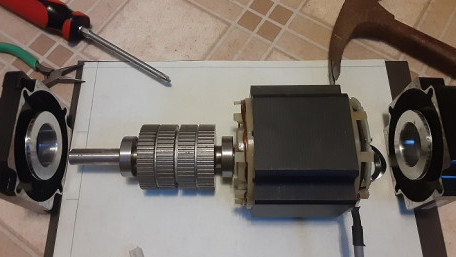
When the angle or distance of motion is more important than speed and power, certain motors shine brighter, like…
When the angle or distance of motion is more important than speed and power, certain motors shine brighter, like steppers, named for the individual steps they take when control voltage is applied.
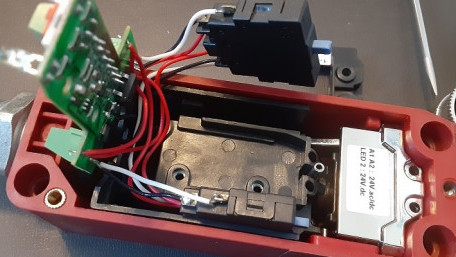
Safety devices have two main purposes, both of them meant for (you guessed it) safety. They protect both machine and…
Safety devices have two main purposes, both of them meant for (you guessed it) safety. They protect both machine and operator from harm. But what’s inside, and how do these switches work?
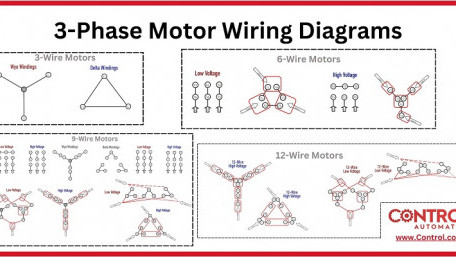
Compete wiring diagram guide for 3-wire, 6-wire, 9-wire, and 12-wire three-phase motors used for industrial automation.
Compete wiring diagram guide for 3-wire, 6-wire, 9-wire, and 12-wire three-phase motors used for industrial automation.
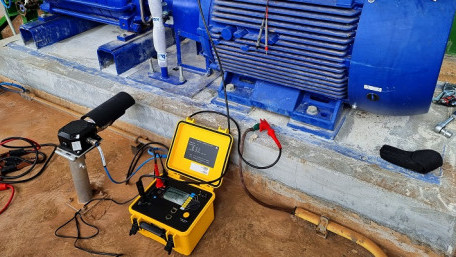
Within motors, two very different types of resistance are evident. The resistance of the windings is measured with a…
Within motors, two very different types of resistance are evident. The resistance of the windings is measured with a normal multimeter. But what is insulation resistance, and how is it measured?
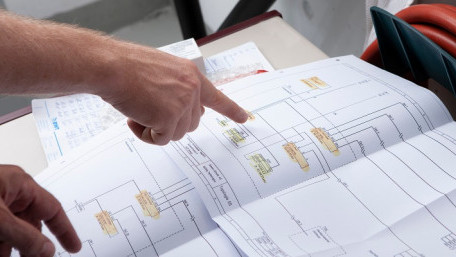
In order to trace control system problems to the core, the ability to read and interpret various resources, from…
In order to trace control system problems to the core, the ability to read and interpret various resources, from facility-level diagrams to machine-level wiring layouts, is critical.
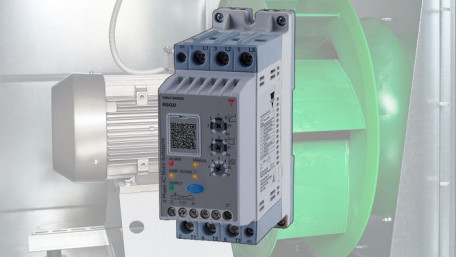
Controlling the startup of a motor not only reduces the wear on the motor, but eases the burden on the electrical supply,…
Controlling the startup of a motor not only reduces the wear on the motor, but eases the burden on the electrical supply, reducing infrastructure demands and the running cost of industrial loads.
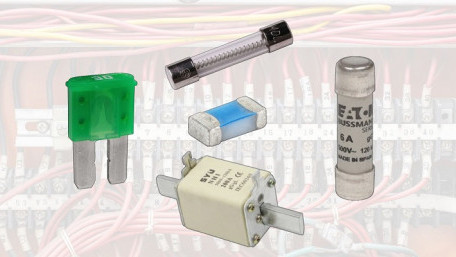
Protecting equipment and personnel from overcurrent dangers, like sparks and fires, is the primary job of the humble…
Protecting equipment and personnel from overcurrent dangers, like sparks and fires, is the primary job of the humble fuse, one of the most basic, yet critical of all safety devices.
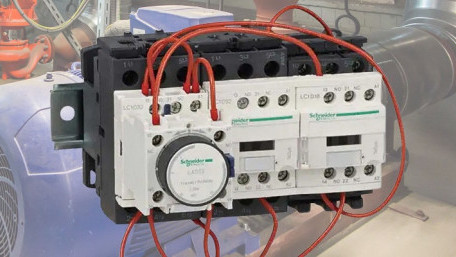
Digital controls like VFDs and soft starts have advantages by elongating start time, but simple strategies for starting…
Digital controls like VFDs and soft starts have advantages by elongating start time, but simple strategies for starting motors with a reduced current draw, like star-delta (or wye-delta) are common.
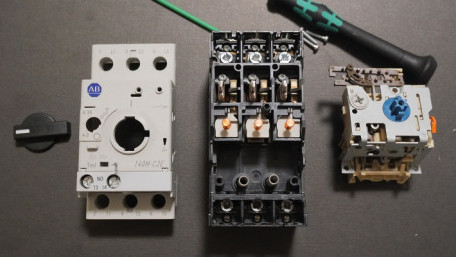
We depend on circuit breakers all the time, even when you have a day off or work from home. These overcurrent protection…
We depend on circuit breakers all the time, even when you have a day off or work from home. These overcurrent protection devices keep machines running safely, reducing the risk of fires and arcing.
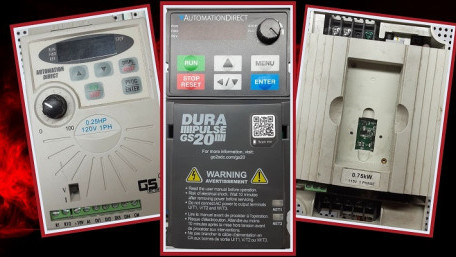
When we need to change the speed of an industrial motor, whether to control a process or save energy costs, we turn to…
When we need to change the speed of an industrial motor, whether to control a process or save energy costs, we turn to the variable frequency drive, better known simply as a VFD.
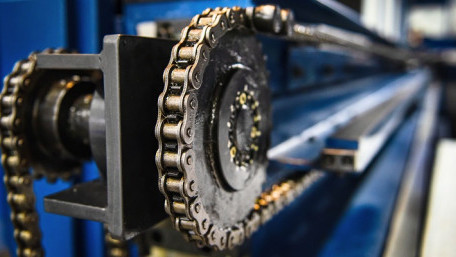
In the world of mechanical power transmission, gears, belts, and chains dominate the landscape, but what's so special…
In the world of mechanical power transmission, gears, belts, and chains dominate the landscape, but what's so special about chain drives, and why would they be used in place of rubber belts?
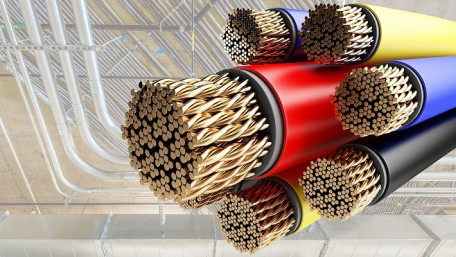
Current flow in wires is often modeled with a perfectly circular cross-section, with the size of the wire being…
Current flow in wires is often modeled with a perfectly circular cross-section, with the size of the wire being responsible for the maximum current. This is true, but there’s more to the story.
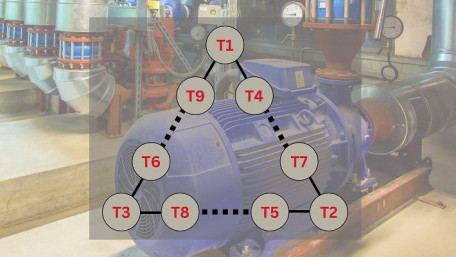
There are two types of winding designs inside three-phase industrial motors: Wye and Delta. Although the motors and…
There are two types of winding designs inside three-phase industrial motors: Wye and Delta. Although the motors and connections look similar on the outside, this article discusses the internal construction for Delta wound motors.
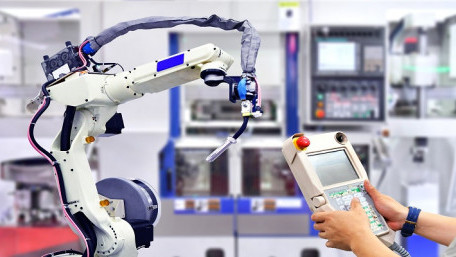
Innovation has a single purpose: to create better solutions, meaning more efficient output with faster development and…
Innovation has a single purpose: to create better solutions, meaning more efficient output with faster development and troubleshooting. It starts with the strategies used to program machines.
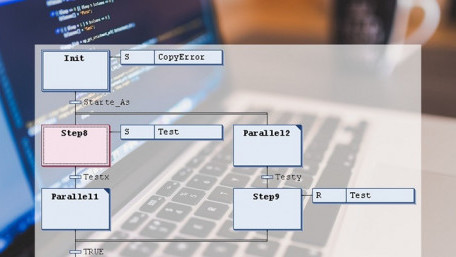
Sequential function charts (SFCs) are a great tool when processes require sequence control, but things can get…
Sequential function charts (SFCs) are a great tool when processes require sequence control, but things can get complicated fast. Here are some ways to create better SFC programs and applications.
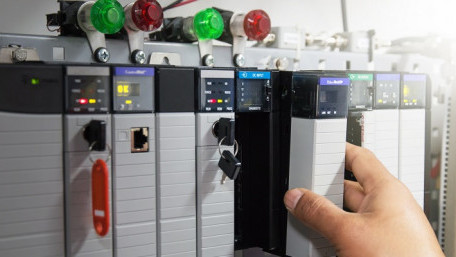
Programmable Logic Controllers (PLCs) are designed as an endlessly-looping program, examining all lines of code as…
Programmable Logic Controllers (PLCs) are designed as an endlessly-looping program, examining all lines of code as rapidly as possible. Following are a few critical tips for when programmers only need to run a series of single operations at startup.
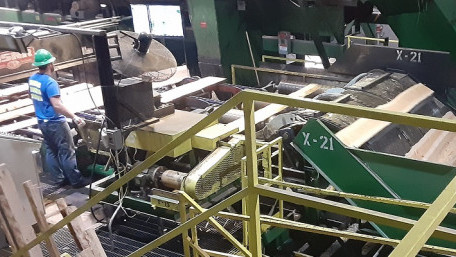
From forest to felling, logging road to mill, finished lumber’s adventure on its way to market is filled with control…
From forest to felling, logging road to mill, finished lumber’s adventure on its way to market is filled with control and automation. Learn about the process from start to finish and how lumber mills ensure the world has access to high-quality lumber thanks to control technology.

Understanding the building blocks of s-domain analysis and magnitude response theory can go a long way in helping…
Understanding the building blocks of s-domain analysis and magnitude response theory can go a long way in helping engineers predict how and why some system design choices are made over others.
